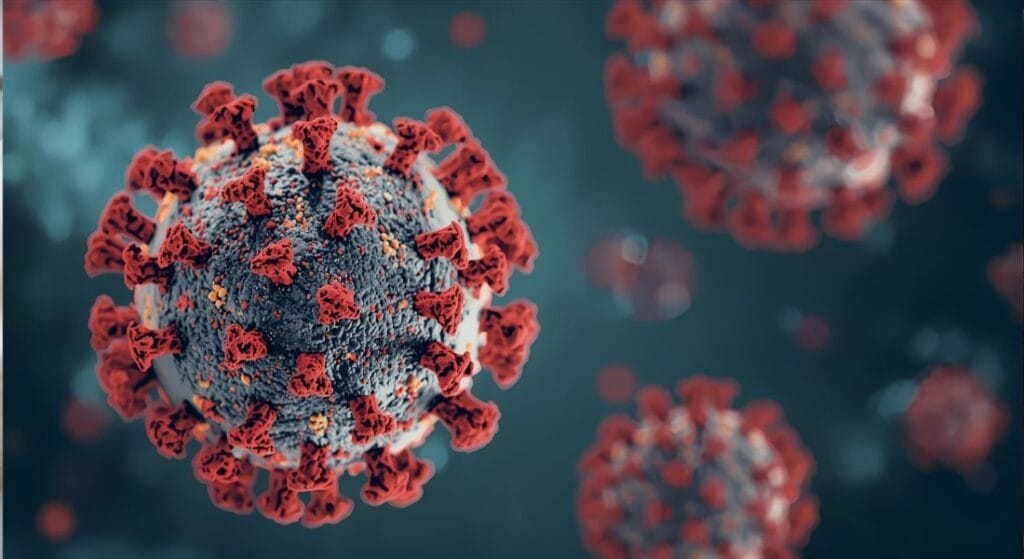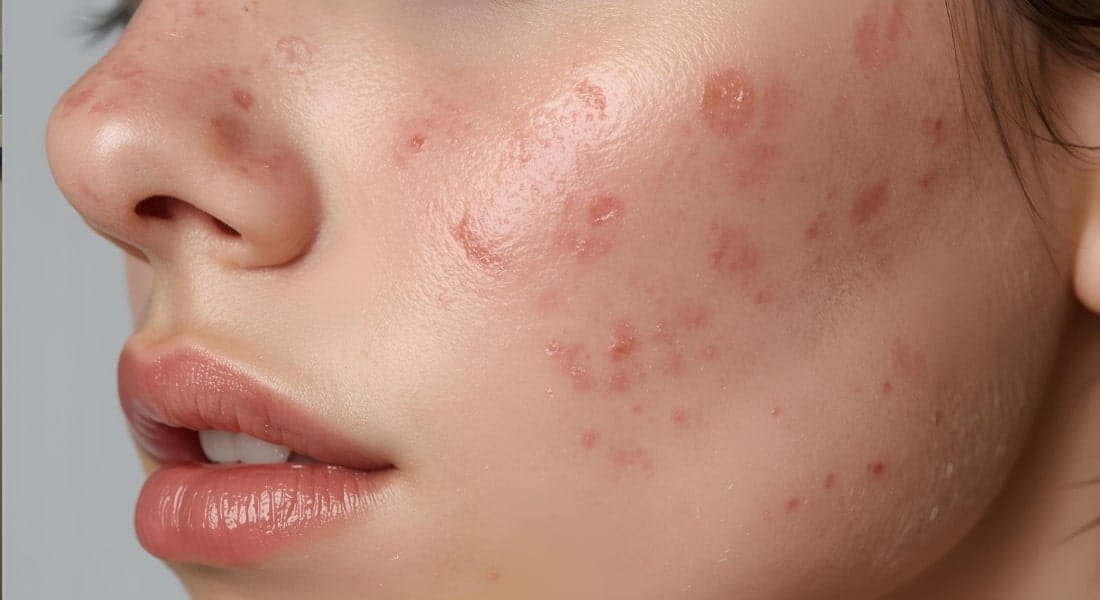The Struggle with Acne: Why We Need a New Approach
For millions, acne is more than just a skin condition; it’s a source of frustration, impacting confidence and quality of life. While traditional acne treatments—from topical creams to oral antibiotics—have their place, they often come with limitations. Many treatments can cause skin dryness, irritation, or temporary relief without addressing the root cause. For those with stubborn acne or post-inflammatory hyperpigmentation and scars, the search for a truly effective, long-lasting solution can feel endless.
Enter exosomes, a cutting-edge breakthrough in regenerative medicine and a revolutionary new approach to skincare. They represent a significant leap forward, offering a more holistic and regenerative pathway to treating acne. Aakaar Medical Technologies is at the forefront of this innovation with products like etrelume Acnecidol Exo, which harnesses the power of exosomes to tackle acne at a cellular level.
What Are Exosomes?
To understand how exosomes work, think of them as tiny, microscopic messengers. Exosomes are a type of extracellular vesicle—a small bubble released by cells that carries a “cargo” of vital information, including proteins, lipids, and growth factors. They are the body’s way of facilitating cell-to-cell communication. When a cell needs to send a message to another cell, it packages that message into an exosome and releases it into the surrounding tissue.
In the context of dermatology and skin regeneration, exosomes derived from stem cells or other regenerative cells are packed with beneficial components that can signal skin cells to heal, repair, and regenerate. They are not cells themselves, which means they cannot replicate, but they act as powerful signaling agents to promote healthy skin function.
How Do Exosomes Help in Acne Treatment?
The beauty of exosome therapy for acne lies in its multi-faceted approach. Unlike traditional treatments that often only target a single symptom, exosomes address multiple factors contributing to acne development. This is why many dermatologists are calling them a game-changer.
- Anti-Inflammatory Properties: Acne is fundamentally an inflammatory condition. Exosomes contain powerful anti-inflammatory molecules that can calm down an overactive immune response in the skin, reducing the redness, swelling, and pain associated with breakouts. By modulating inflammation, they help prevent new acne lesions from forming.
- Regulation of Sebum Production: Excessive sebum (oil) is a primary cause of acne. Research suggests that exosomes can help regulate the activity of sebaceous glands, leading to a reduction in oiliness and a less favorable environment for acne-causing bacteria.
- Promoting Skin Cell Repair and Reducing Scars: One of the most significant exosome benefits for skin is their ability to stimulate the natural healing process. The contents of exosomes can signal fibroblasts—the cells responsible for producing collagen—to ramp up production. This accelerated repair process not only helps clear existing lesions faster but is also crucial for reducing the appearance of post-acne scars, promoting a smoother skin texture.
- Collagen Stimulation for Overall Skin Health: The ability of exosomes to stimulate collagen production goes beyond scar healing. It contributes to overall skin health, improving elasticity, reducing fine lines, and giving the skin a more youthful and radiant appearance.
This powerful combination of effects makes what are exosomes in acne treatment a question with a very promising answer: they are a comprehensive solution for skin regeneration and healing.
Exosome Therapy vs. Traditional Acne Treatments
When comparing exosomes vs traditional acne treatments, the differences are profound.

- Antibiotics: Oral and topical antibiotics work by killing the acne-causing bacteria (P. acnes). While effective in the short term, they can lead to antibiotic resistance and do not address the underlying inflammation or scarring. Exosomes do not target bacteria directly but instead create a healthier skin environment.
- Retinoids: Retinoids work by promoting cell turnover and preventing clogged pores. They are highly effective but can cause significant dryness, peeling, and sun sensitivity, making them difficult to tolerate for some patients. Exosomes work regeneratively, with minimal to no irritation.
- Chemical Peels: Peels exfoliate the top layers of the skin to clear pores and improve texture. While they can help with acne scars, they can also cause significant downtime, redness, and a risk of hyperpigmentation, especially in darker skin types. Exosomes offer a gentler, regenerative approach.
The key advantage of new acne treatment exosomes is their regenerative nature. Instead of simply treating symptoms or stripping the skin, they communicate with cells to restore a state of health from within, leading to long-term results with fewer side effects.
Clinical Evidence & Research on Exosomes for Acne
While exosome therapy is a relatively new frontier, clinical research is rapidly validating its efficacy. Multiple studies have shown that when applied topically after procedures like microneedling or radiofrequency, exosome-based solutions can significantly reduce acne lesions and improve overall skin quality. Researchers are also exploring their role in modulating the immune system to reduce the inflammatory response that drives severe acne. This growing body of evidence is why exosome therapy dermatology is a field of increasing interest for practitioners worldwide.
Exosome Therapy in Dermatology (Beyond Acne)
The regenerative power of exosomes extends far beyond acne. Their ability to stimulate collagen, reduce inflammation, and promote cell turnover makes them a versatile tool in aesthetic medicine. Dermatologists are using exosome-based therapies for:
- Skin Rejuvenation: Reducing the appearance of fine lines, wrinkles, and sun damage.
- Pigmentation Reduction: Helping to even out skin tone and reduce hyperpigmentation.
- Scar Healing: Improving the texture and appearance of surgical and traumatic scars.
- Hair Restoration: Stimulating hair follicles to promote new hair growth.
This broad range of applications positions exosomes as a cornerstone of future regenerative skincare.
Aakaar’s Innovation – etrelume Acnecidol Exo
Aakaar Medical Technologies is proud to introduce etrelume Acnecidol Exo, an innovative, exosome-powered skincare gel designed for comprehensive acne management. This product represents a new generation of acne solutions, combining the regenerative properties of exosomes with a blend of clinically proven ingredients to target acne at its source.
etrelume Acnecidol Exo is formulated to provide a holistic approach to acne care. Its benefits include:
- Targeted Delivery: The exosome-powered formula ensures that key ingredients are delivered effectively to the skin cells that need them most.
- Reduction of Acne Lesions: It helps to actively reduce existing breakouts and calm inflammation.
- Improved Skin Texture: By promoting cell repair and collagen synthesis, it helps to fade acne scars and improve overall skin texture, leaving skin feeling smoother and more balanced.
- Multi-Action Ingredients: In addition to exosomes, it contains a blend of anti-inflammatory, sebum-regulating, and soothing agents to address all aspects of acne.
Who Can Benefit from Exosome Acne Treatments?
Exosome-based treatments offer a viable option for a wide range of individuals:

- Teenagers with Recurring Acne: For those who have not responded well to traditional treatments, exosomes provide a gentle yet effective alternative.
- Adults with Stubborn Acne or Post-Acne Scars: How do exosomes work for acne that won’t go away? By addressing underlying inflammation and promoting skin remodeling, they can finally offer a solution for persistent breakouts and the lingering effects of acne scars.
- Patients Seeking Advanced, Side-Effect-Minimized Treatments: Anyone looking for a powerful treatment that avoids the harsh side effects of some conventional therapies can benefit from exosome therapy.
At-Home Use vs. Clinical Treatments
Exosome-based products are available in both professional clinical settings and as at-home skincare products like etrelume Acnecidol Exo. While in-clinic treatments often involve a dermatologist applying a potent exosome serum after a procedure like microneedling to enhance penetration, at-home products are formulated for consistent, daily use to support and maintain skin health.
It is crucial to emphasize that any advanced treatment should be used under the guidance of a healthcare professional. A dermatologist can assess your skin condition and recommend whether an in-clinic procedure or an at-home product is the right fit for you.
Safety, Side Effects, and Considerations
Exosomes are naturally occurring and have a high safety profile. Because they are not living cells, there is no risk of immune rejection or unwanted cell differentiation. Any side effects are typically related to the delivery method (e.g., mild redness or temporary swelling from microneedling) rather than the exosomes themselves. However, it’s always important to use products from a reputable brand and to consult a dermatologist to ensure proper usage and to manage expectations.
The Future of Exosome-Based Acne Treatments
The field of exosome research is still in its early stages, but the potential is enormous. As we learn more about cell-to-cell communication and regenerative medicine, exosomes are poised to become a key part of precision dermatology, where treatments are tailored to a patient’s unique biological needs. The future holds promise for even more targeted and effective exosome therapies.
Frequently Asked Questions
Q: What are exosomes in acne treatment?
A: Exosomes are tiny vesicles released by cells that carry vital information to other cells. In acne treatment, they are used to deliver powerful anti-inflammatory and regenerative signals to skin cells, helping to calm breakouts, reduce redness, and promote the healing of acne scars.
Q: Are exosomes safe for acne-prone skin?
A: Yes, exosomes are generally considered very safe. Because they are not living cells, they have a low risk of causing an immune response. Any side effects are usually related to the delivery method rather than the exosomes themselves.
Q: How do exosomes compare to retinoids?
A: Exosomes and retinoids have different mechanisms. Retinoids work by promoting cell turnover, which can cause irritation and dryness. Exosomes work by signaling skin cells to regenerate and reduce inflammation, offering a regenerative approach with minimal side effects.
Q: Can exosomes help with acne scars?
A: Yes, one of the key exosome benefits for skin is their ability to help with acne scars. By stimulating collagen and elastin production, they help to rebuild and repair damaged skin tissue, leading to a visible improvement in the texture and appearance of scars over time.
Conclusion
Acne can be a challenging journey, but the arrival of exosome-based therapies offers a beacon of hope. By understanding what are exosomes in acne treatment, you can appreciate their unique ability to heal and regenerate skin from the inside out, offering a powerful alternative to traditional methods.
With products like etrelume Acnecidol Exo, Aakaar Medical Technologies is bringing this cutting-edge innovation to patients seeking effective, safe, and long-lasting solutions. For anyone looking to break free from the cycle of breakouts and skin damage, exploring the regenerative power of exosomes is a step toward achieving clearer, healthier skin. We encourage you to consult with your dermatologist and visit the Aakaar Medical Technologies website to learn more about etrelume Acnecidol Exo and begin your journey to a more radiant complexion.


